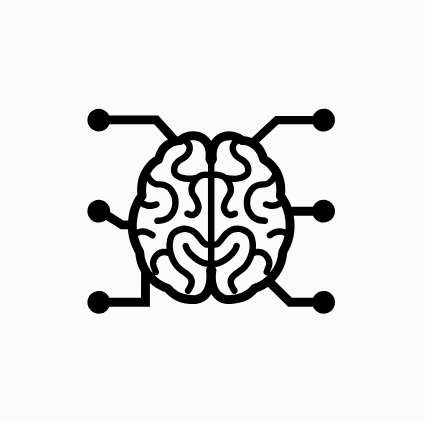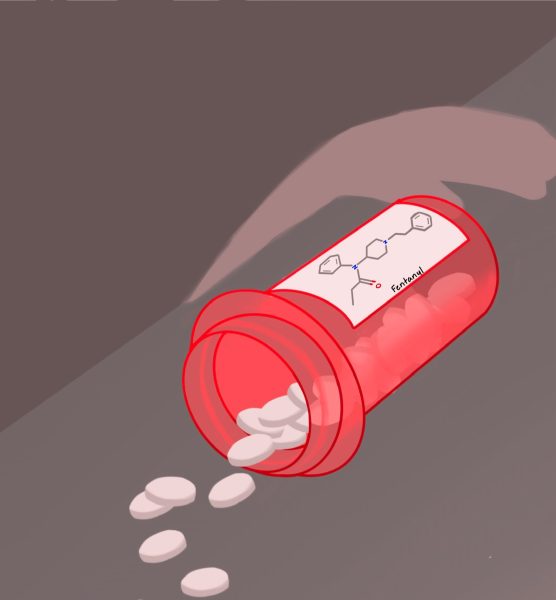The Promises and Pitfalls of Artificial Intelligence

Martin Markstein, DE via thenounproject
What are the advantages and disadvantages of artificial intelligence?
We encounter artificial intelligence (AI) every day on our phones and computers. This technology can really help us as its capabilities grow, but it could also be dangerous.
Currently, companies are developing new AI applications that could write songs, drive cars, make investment decisions and many more complex operations that we once thought only humans were capable of.
“The benefits of AI could include a reduction in traffic safety deaths and increased mobility for people with disabilities due to autonomous driving cars,” technology teacher Craig Alexander said.
But Alexander also worries about potential dangers.
“Too much reliance on technology is never a good thing because technology may not always be there,” he said. “You have to have some basic survival skills, and over-reliance on technology can cause a reduction in common sense.”
OpenAI is a research institute co-founded by Elon Musk in 2015. Its stated mission is “to ensure that artificial general intelligence benefits all of humanity.” The company has made a lot of progress towards advancing artificial intelligence.
One of their more recent models is the “GPT-2”. When typing a sentence on your phone, there is usually a display of text that appears just above the keyboard that predicts your next word after analyzing your last few typed words.
The GPT-2 is a language model program similar to the program on your phone, but taken a few steps further. This model was fed samples of human text.
After analyzing these samples, the program could be fed new human text, analyze it, and spit out what it thought could be the next sequence of words.
There are two major differences between GPT-2 and the technology on your phone – the length of the response and the breadth of the program’s capabilities.
Once given a few sentences of prompts, the program could write an entire news article or essay. Additionally, it could perform many different tasks, including answering a prompt, summarizing and answering questions about a passage, translating to French, and writing believable news articles using fake information.
Others have attempted to create a program with GPT-2s capabilities, but one of the major differences is the amount of text used to train the program. Usually, researchers use Shakespeare’s works as a common, consistent baseline to train their machine learning AI systems.
This is roughly equivalent to five megabytes of data. GPT-2, on the other hand, uses 40 gigabytes of text from about eight million web pages.
The great quantity of material that OpenAI’s program learned from explains how it could complete a wide variety of tasks.
So what could this new technology mean for our world and the future?
Well, there are a few frightening implications. As technology such as GPT-2 become more advanced, it will be able to do many things that could be harmful.
For example, someone with malicious intentions could use the software to spew out endless fake news articles based on lies and false information.
In the near future, we might need to be more careful about what we read so that our opinions don’t get swayed by endless propaganda.
The economic impacts could be significant for drivers of trucks, buses and other forms of transport.
Some have always argued that even though artificial intelligence could take the place of routine jobs, it could never replace ones that require creativity as well.
Now the jobs of journalists, writers or editors may be under threat as well.
As current BHS students begin to graduate and start college, artificial intelligence could have a big impact on career choices.
In 20 years, many careers may have become obsolete.
It’s not difficult to imagine successeeding models to GPT-2 looking tempting to students as an essay generator. It will not only give them a high quality assignment, but will be almost impossible to trace for plagiarism due to the fact that it was written by the program and not found online.
Maybe all the writing will be done by robots who are both faster and more intelligent than the human race. It’s hard to see it happening now, but in a few decades, it might not be unrealistic.
Even now, we are giving more and more trust to AI. The writing portions for the AIR tests that Beachwood students take are graded by computer.
One of the scary things about this is that AI systems aren’t perfect. There could be many serious flaws in the program, and some have questioned the accuracy of the scores.
A machine learning algorithm can be even more dangerous, at times.
“A machine learning algorithm with poorly defined limitations could decide that the best way to achieve its goal is to do something else destructive,” junior Ethan Jeffers said.
Besides these language modeling systems, there are other dangers surrounding AI in a broad sense.
“Some models [are given] large sets of data,” AP computer Science teacher John Kaminski said. “Certain biases can be built into the data set, and the models could perpetuate those biases.”
He gave the example of hiring programmers.
“If you look at a data set for hiring programmers, a majority of them are going to be male,” he said. “Artificial intelligence is going to look at that and say ‘Oh, being a male tends to make you a better programmer because most programmers are male.’”
This is obviously a ridiculous statement with logical errors that we humans can understand. but an Artificial Intelligence system might use that kind of false logic, if not regulated properly, and these sorts of biases could be very common and very hard to notice.
Luckily, the implications of AI are not all dark. Thus far, the language modeling technology is far from perfect. Much of what GPT-2 writes is complete gibberish, and has to be tested multiple times to get a comprehensible result.
“Grammatically, [the GPT-2 model] seems good,” Kaminski said. “But there are a lot of logical errors where it’s not making the connections.”
Indeed, much of the writing of GPT-2 contradicts itself and trails off.
“It’s pretty impressive that it could come up with something grammatical,” he says, “But there are some obvious contradictions, missed vocabulary, words and subtleties… that is great progress, but we’re not quite there yet.”
As a safety measure, the company behind GPT-2 has also decided to keep the program unreleased from the public to prevent it from getting in the wrong hands. Despite its limited capabilities, it could still do some harm.
But even its capabilities could be positive in the long run. It could give us summaries of current events at super-human speed and find patterns and make discoveries far above human level.
Thus, the rise of AI and machine learning in our world could have scary consequences to our society, but if we can be careful, the technology can be very useful to our progress towards advancing human knowledge.

Michael Karpov began writing for the Beachcomber in November of 2018. He reviews movies and runs the Bison Beat. In addition to writing for the Beachcomber,...












